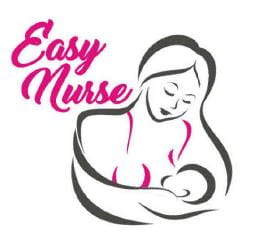- Home
- News & insights
- Insights
- easyJet opposes Easy…
2020年7月13日
Brands update - July 2020 – 7 / 9 观点
easyJet opposes Easy Nurse at the UKIPO
- IN-DEPTH ANALYSIS

In 2017, Natalie Waldbaum filed a UK trade mark application for the above logo, covering various goods related to pregnancy and goods for new mothers in classes 5, 10, 24 and 25. Ms Waldbaum runs a store selling various maternity related products, such as nursing bra conversion kits.
easyGroup Limited, the owner of the well-known airline easyJet, filed an opposition against this application, based on its EU trade marks for the words EASYJET, EASYGROUP, EASYFITNESS, and EASYHOTEL. There was only some crossover with the goods of Ms Waldbaum's application; specifically, goods in class 5, such as hygienic and sanitary preparations for medical purposes, disinfectants, and baby food.
easyGroup argued that Ms. Waldman's logo and the goods it covered were very similar to its various EASY word marks, such that they would be likely to confuse the public. easyGroup also argued that it had significant reputation in its services in classes 39 and 43, which relate to transport, travel and other accommodation services.
On that basis, easyGroup argued that Ms Waldbaum was trying to freeride on its reputation in those markets, even though the Ms. Waldbaum's business is entirely unrelated to easyGroup's various businesses.
As part of its supporting evidence, easyGroup submitted witness statements based on statements from other disputes that generically described its reputation and relied on many marks that were not the basis of the opposition. One witness statement read:
"The widespread licencing of the mark 'easy' into fields as diverse as travel, retail, foodstuff's, gyms and estate agency has led to a recognition that commercial activities with an 'easy' prefix are likely to emanate from easyGroup."
Other evidence lacked persuasiveness, as it was either irrelevant or fromafter the date that the application was filed.
Ms. Waldman's representatives cited various cases where the EUIPO and UKIPO have decided against easyGroup where they had opposed applications containing the word "easy".
The UKIPO examined the goods covered by the various marks, and this application. Only some of the goods in class 5 were found to be somewhat similar, although they are used in different contexts. For example, the sanitary preparations for medical purposes and disinfectants are used in aircrafts for passenger hygiene, whereas Ms.Waldman's goods covered are to cater specifically to pregnant women and new mothers.
easyGroup also tried to argue that its temporary accommodation services in class 43 were similar to the applicant's goods for textiles and fabrics in class 24, claiming that items like bedding and hotel linen should be seen to be similar as they are "part of the opponent's business".
The UKIPO noted that these are not interchangeable, as Mr Daniel Alexander QC held in the LRC Holdings Limited case when confirming that glassware and wine were not similar goods for trade mark purposes, even though they are almost always used together (BL-0-255-13).
easyGroup argued that because both the application and its own marks start with the word EASY, that NURSE must be merely descriptive in relation to the opposed goods and services. Ms. Waldman submitted that easyGroup's marks consist of the word EASY conjoined with suffixes that have a connection to the service provided (eg EASYHOTEL provides temporary accommodation, and EASYJET provides flights). None of those words had a connection with the word NURSE, nor are they used in relation to similar services. EASYNURSE – paired with the picture of the woman nursing in the device – shows that the mark has some link to nursing babies.
The UKIPO compared easyGroup's marks and the Easy Nurse device, noting that the words in the device are not connected, in contrast to the other easyGroup marks. The device is also highly stylised, with the silhouette of a woman nursing a baby. The marks were held to be at best similar to a low degree. Aurally, the marks are identical at the start, but the second words are entirely different. As a whole, the UKIPO also held that they were not conceptually similar.
Although some of the goods crossed over between easyGroup's marks and the Easy Nurse application, these were very minor; therefore there was no likelihood of confusion.
Further, it was found easyGroup could only show recent use related to the easyJet and easyHotel marks. easyGroup tried to argue that this meant that its marks could be seen as a family of marks, and that there was likelihood of confusion here, as well. This was not accepted by the UKIPO.
easyGroup failed to show that it has any reputation in the word "EASY". It was found to have some reputation in relation to easyJet and easyHotel, related to airline and accommodation services; however, this did not equate to reputation in the word EASY. easyGroup also failed to show that the public would make a link between the Easy Nurse logo and its EASY variant marks, as they were conceptually and visually dissimilar.
As a result, the opposition failed on all grounds.
This decision is another example of easyGroup's continued attempts at opposing marks that incorporate the word "EASY" at the beginning of the verbal element of the mark, no matter what the area of business. It also serves as a reminder that – when using evidence of reputation from previous cases – care needs to be taken accurately to reflect the basis of the opposition at hand. In addition witness statements referring to that evidence must be sufficiently tailored, and avoid sweeping statements.
Case reference: O-279-20
本系列内容
EU law on the "technical result" and "substantial value" exclusions for shape marks
2020年6月29日
Related Insights



